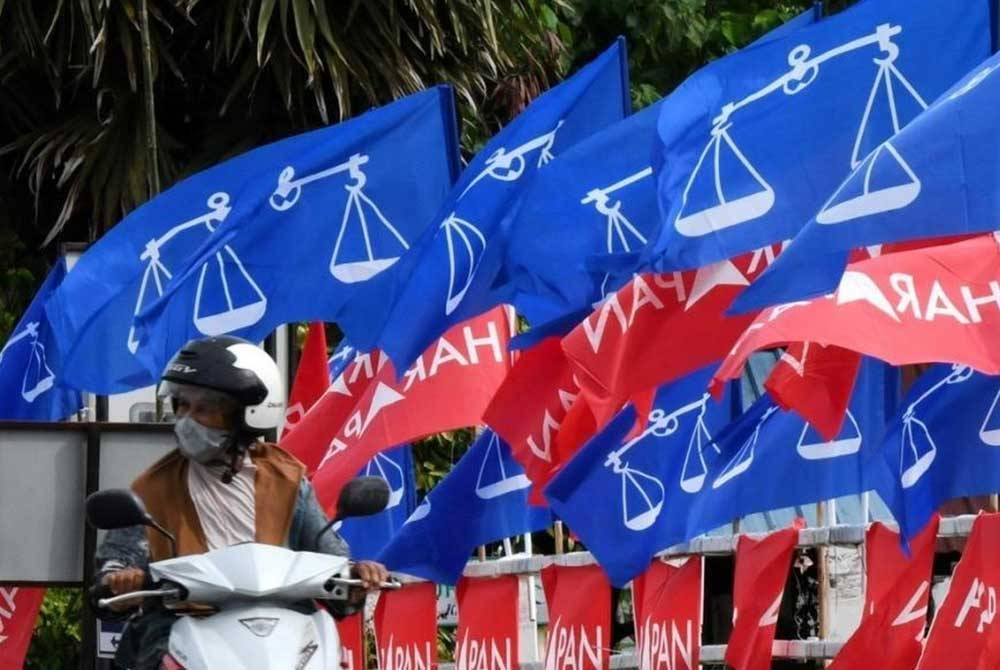BN, under Zahid will remain loyal to PH
Anwar’s statement about preventing seat overlaps between PH and BN suggested a commitment to deepening the political partnership leading to GE16, dismissing the possibility of BN leaving the coalition.

SHAH ALAM - Barisan Nasional (BN) remains steadfast in its commitment to the unity government led by Datuk Seri Anwar Ibrahim, despite efforts by certain parties to entice the coalition to leave with the promise of the Prime Minister's position.
O2 Research chief analyst Anis Anwar Suhaimi said recent remarks by BN chairman Datuk Seri Ahmad Zahid Hamidi indicated that the party, supported by Pakatan Harapan (PH), intended to continue its political partnership established in the 16th General Election (GE16).
"Since the formation of the Madani Government, BN has shown compatibility in its administration alongside PH.
"Zahid has repeatedly emphasised the importance of this collaboration to ensure political stability and continuity in governance.
"Looking at the political patterns during this period, the state elections and by-elections have demonstrated a high level of tolerance among the unity government’s component parties, including in campaign collaboration and machinery support.
"Additionally, statements by PH leaders reflect their desire to sustain this strategic partnership until GE16. Hence, it’s hard to envision BN contesting alone," he told Sinar.
He added that Anwar’s statement about preventing seat overlaps between PH and BN suggested a commitment to deepening the political partnership leading to GE16, effectively dismissing the possibility of BN leaving the coalition.
The approach, he said not only ensured political stability within the unity government, but also strengthened BN's position under Zahid's leadership.
"Over nearly two years, Zahid and BN have experienced harmonious political interactions with PH.
"The sharing of seats during the recent state election and the absence of blame on Zahid for the weaknesses of the previous government indicate that PH does not harbor animosity towards BN, unlike previous colder political alliances.
"This, combined with Anwar’s promise to avoid seat overlaps, suggests that Zahid and BN are likely to remain in the unity government," he said.
On Sunday, Zahid revealed that efforts had been made to persuade BN to leave the unity government and form a new administration, with the offer of the Prime Minister's post as an incentive.
However, he did not elaborate on who made the offer while speaking at the 2024 Federal Territory BN Convention at the World Trade Centre, Kuala Lumpur.
Anis also said he was of the view that BN's decision to remain in the unity government reflected Umno’s comfort within this coalition, as long as it held a significant role in the administrative structure.
"Umno’s leadership under Zahid appears more pragmatic in its political approach. This suggests Umno understands the need to adapt to an increasingly complex political landscape.
"However, the decision to move independently or continue collaborating with PH hinges not just on political courage but also on strategic wisdom to ensure the party’s political survival in an increasingly competitive environment.
"Umno must ensure the winnability of its contested seats and its ability to remain relevant in any post-election government coalition," he added.
He noted that should BN decide to exit the unity government and contest independently in the next general election, the political implications would be significant.
He said the main challenge would not only be addressing critical voter sentiment towards BN but also dealing with the structural difficulties of the 'first-past-the-post' (FPTP) electoral system.
In this system, any loss of vote percentages due to vote-splitting would significantly impact the chances of victory.
"PH’s performance in several state elections and by-elections between GE14 and GE15 has shown how easily a political coalition can falter if it fails to maintain unity or make accurate political calculations.
"In this context, contesting independently risks diminishing BN’s chances of being part of a post-election government," he added.
Meanwhile, Universiti Kebangsaan Malaysia Political Science senior lecturer Dr Jamaie Hamil believed it was still too early to determine whether BN will contest independently in the next general election, as GE16 is three years away.
"During this period, various possibilities could arise. While BN currently says it will stay, circumstances could change in two years. For now, Umno’s trajectory depends on several factors, including potential leadership changes within the party.
"Additionally, Umno’s strength depends on the strategies it implements to rebuild the party.
"Although the recovery process is challenging, I see efforts being made to improve the party and this will determine whether Umno contests alone or weakens further," he said.
Jamaie added that the reaction of members and supporters and public perception of Umno will significantly influence its decision to stay or leave the coalition, particularly ahead of the next general election.
"I see some positive progress, with their victories in the Nenggiri and Mahkota by-elections, which indicate a recovery process.
"If public acceptance remains unconvincing, Umno is likely to stay in the coalition, depending on who leads the party.
"If the president remains, it will be difficult for Umno to contest independently. However, if there is a change in leadership, the policy may also change.














